All Hands on Deck: Community Collaboration Overcomes COVID-19 Barriers

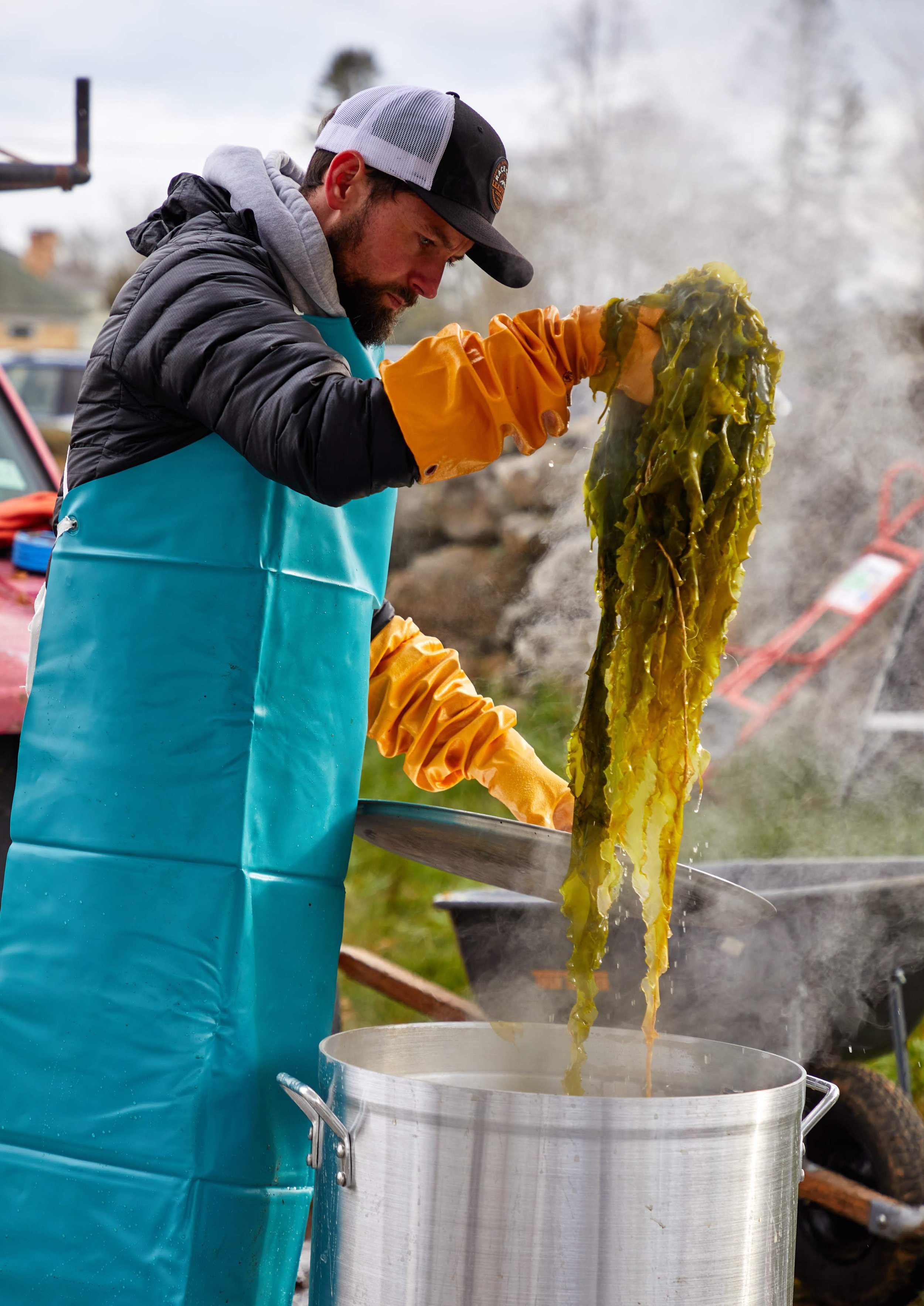
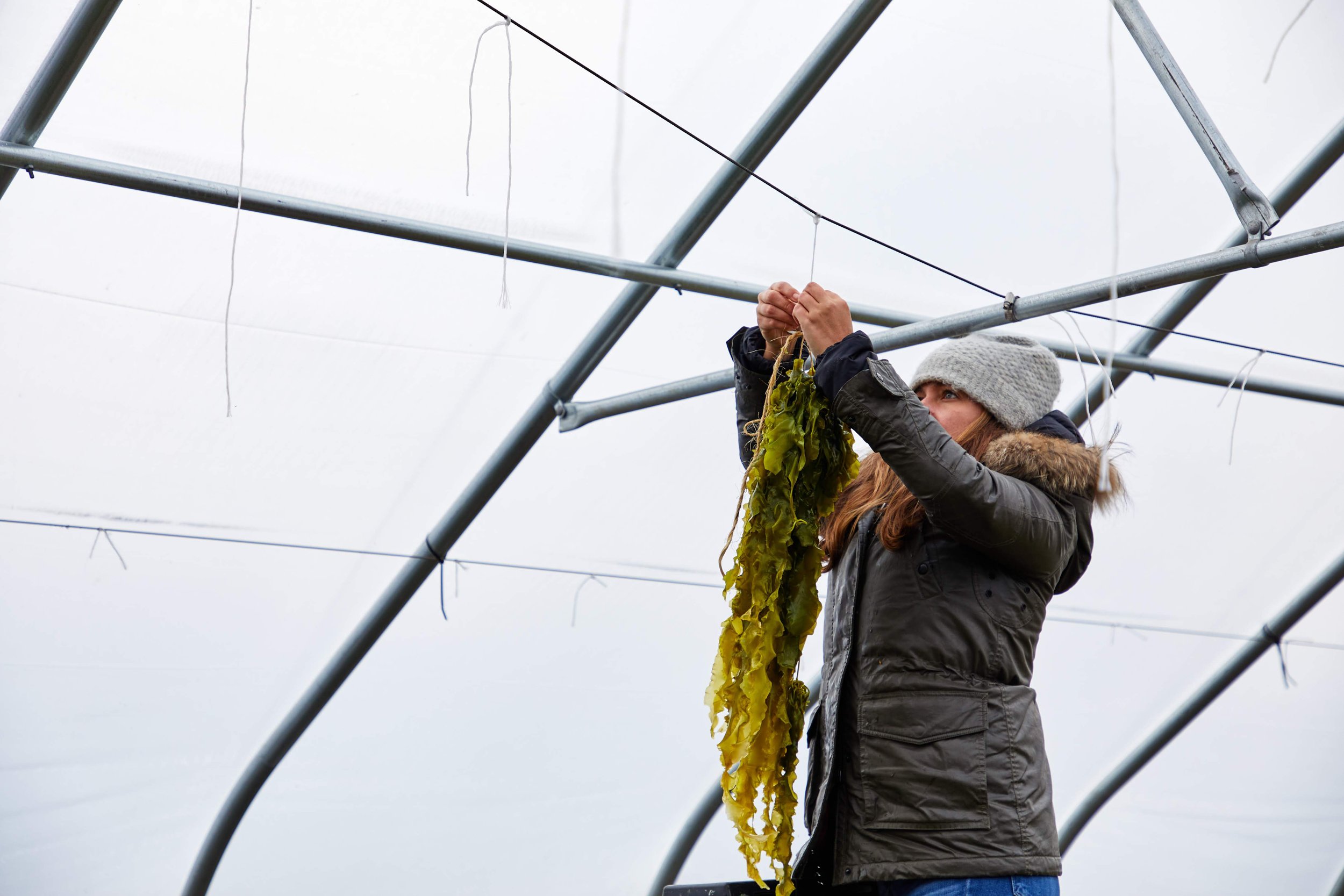
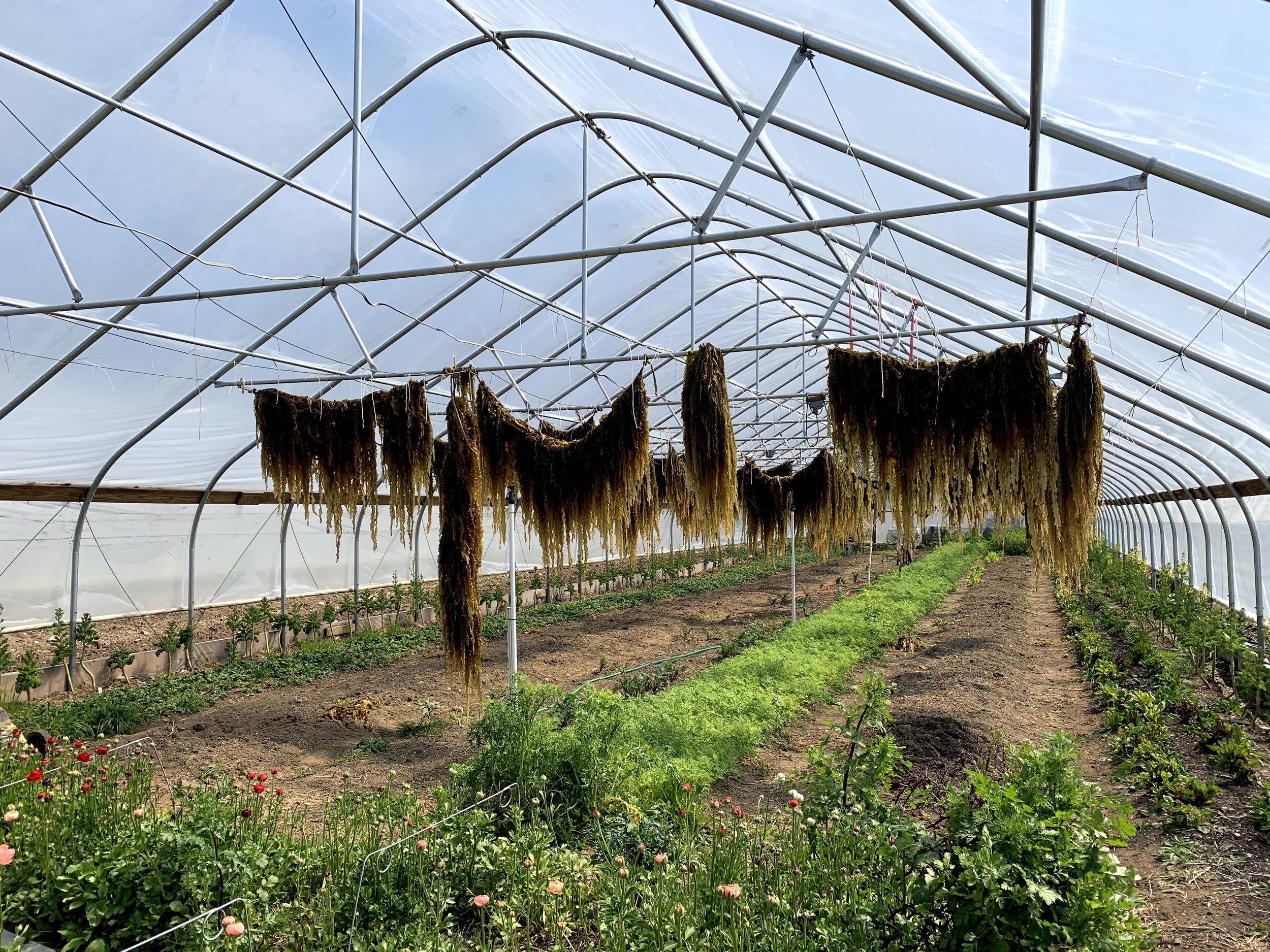
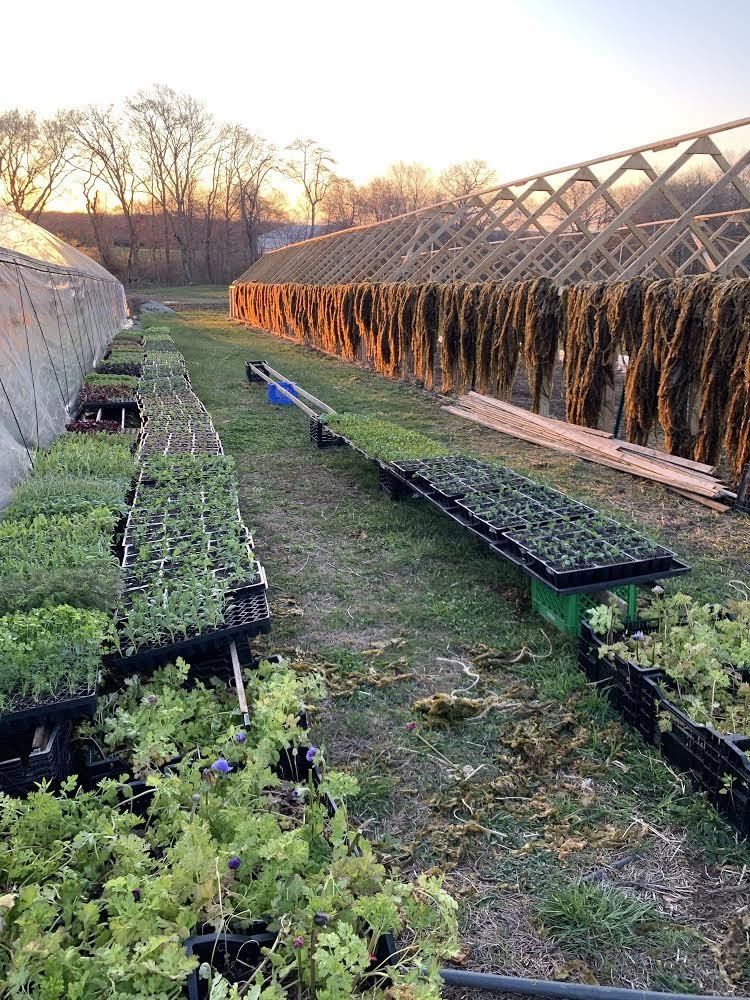
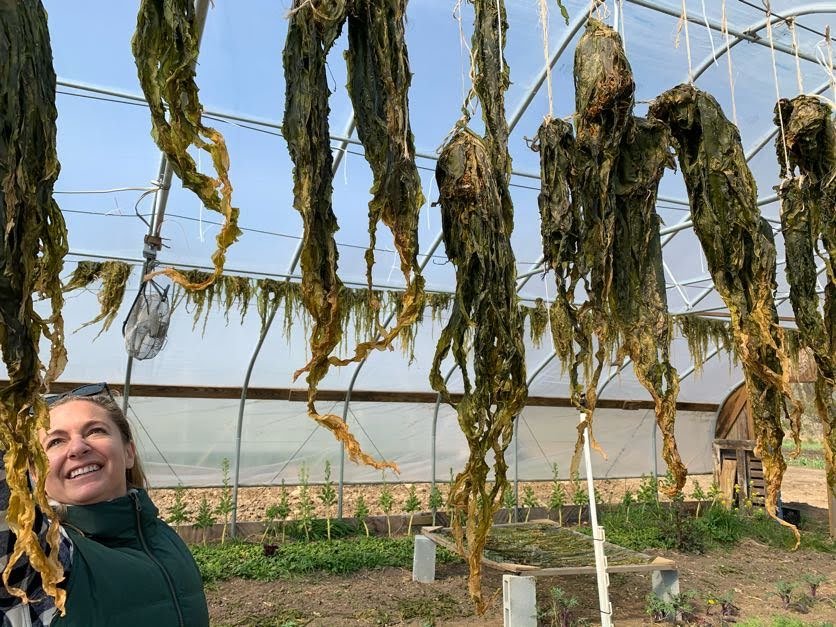
In the wake of the COVID-19 pandemic, GreenWave is working to ensure we can continue to equip regenerative ocean farmers with necessary training, tools, and support they need to build resilient businesses, whether they are facing the day-to-day challenges of making a viable living in the era of climate change or dealing with a major crisis like the COVID-19 pandemic. We are actively teaming up with buyers and regenerative ocean farmers like Catherine Puckett to come up with creative solutions to overcome sales and distribution barriers presented by COVID-19.
“The market hasn’t disappeared. The difference is in who is buying kelp, how much, and in what format. That’s all changed dramatically in one month,” says Sam Garwin, GreenWave’s Market Innovation Strategist.
And for some farmers, the logistics of transporting crops to buyers have changed drastically as well. With rigid quarantine measures in place on Block Island, Catherine had to retool her plans to sell the bulk of her kelp to Brooklyn-based purchaser The Crop Project, a company dedicated to supporting regenerative farmers. Originally, The Crop Project team was scheduled to pick up the kelp from Block Island and help Catherine harvest. “My wheels were spinning off the axles. It stopped me in my tracks,” says Catherine.
Sam and Catherine quickly devised a plan to reroute the kelp. Catherine secured special permission from Block Island’s chief of police to harvest and load her crop onto the only daily outbound ferry to mainland Rhode Island (ferry service has been drastically reduced during the pandemic). In order to comply with restrictions, Catherine worked alone to harvest and bag more than 2,000 pounds of kelp, starting at 8:00 AM to make it in time to load in for the 2:30 PM ferry.
GreenWave and The Crop Project met the fresh kelp at the docks for transport to Stone Acres Farm, a land-based farm in Stonington, Connecticut, where they worked until 12:30 AM to blanch and hang the kelp to dry. In Sam’s search for a solution, Stone Acres stepped in, eager to help facilitate the kelp’s change of course and opened their greenhouse doors for processing and temporary holding. Catherine was relieved. “Picture my network: I’m 12 miles off the coast on an island. My network doesn’t go very far, but GreenWave’s network is far reaching and made this happen,” she says.
Though in its early stages, the kelp supply chain is resilient. “Building this supply chain is not transactional. It heavily relies on relationships,” Sam explains. “Everyone involved shares similar values and believes in the new regenerative ocean farming industry. We all show commitment to one another.”
Kelp grown in the U.S. is still considered a novelty in the food industry—a challenge in the face of the pandemic. “Most people are turning to tried and true comfort food rather than expanding their flavor palates to try kelp products. When it comes to keeping shelves well stocked, grocery stores are prioritizing pantry basics (flour, milk, eggs, etc.) over new items,” Sam explains. Because of this, regenerative ocean farmers are having to redirect their kelp to non-food uses.
Though her kelp found its way to market, Catherine’s shellfish will stay in the water for the foreseeable future. The shellfish side of her business is 100% restaurant sales and for now the seasonal influx of business on the island is halted.
"The rest of my crop will go to a local organic farm. If the kelp won’t be turned into food this season, I’m happy it will help grow local food,” says Catherine. “That’s what we need.”
With the height of the kelp harvest quickly approaching, GreenWave, regenerative ocean farmers, and processing facilities in Southern New England are exploring ways to dry, freeze, and package kelp to extend the window of time farmers have to sell their crop. GreenWave and regenerative ocean farmers are also joining forces with land-based farmers to conduct fertilizer trials as alternative to large volume food purchases.
While the pandemic poses tremendous challenges, we’re discovering creative new ways to work together and forge ahead. We’re grateful for the opportunity to support and learn from our growing regenerative farming network and will continue to work hand in hand with farmers, scientists, and product innovators to build a just, thriving, and resilient blue green economy that supports coastal communities and creates meaningful climate impacts now and in the future.
